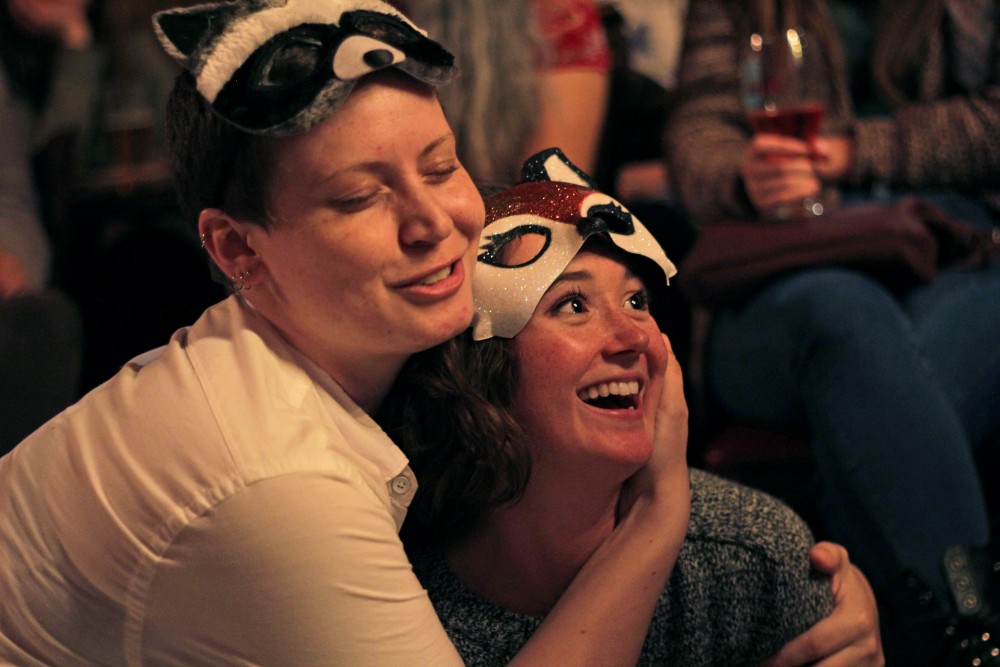Republic is West Bank’s hub for craft beers, gastropub style brunch and, on occasion, a boozy rendition of Shakespeare’s plays by current and former University of Minnesota acting students.
Allie Babich, a graduate of the University of Minnesota/Guthrie Theater BFA Actor Training Program, launched this practice — now known as BARd Shakes — as a part of her senior project while studying at the University.
“I first heard about this Shakespeare in the Bar rendition from The Back Room Shakespeare Project in Chicago,” Babich said. “It was probably one of the first young person-produced Shakespeare productions I had seen … I was thrilled by the energy and the irreverence and the life of it.”
Though Babich didn’t expect the Shakespeare-in-a-bar concept to last past her graduation, the BARd Shakes model has seen multiple, drunken iterations — the most recent was a production of “Romeo and Juliet” on Sept. 4.
Alessandra Bongiardina, the actress who played Paris and a senior in the University’s BFA acting program, can still recall seeing BARd Shakes’ inaugural production of “Twelfth Night” as a freshman.
“It was a huge success,” Bongiardina said. “I remember my entire company being absolutely blown away.”

A BARd Shakes production is structured so that the company, led by “captains” instead of a director, organizes most aspects of the production, has one read-through and one rehearsal before the performance. Audience and actors mingle before the show, typically drinking and engaging in at least one pre-show game, with the winner getting a shot on the house.
After those antics, however, the show begins. Will the actors remember their lines? Will the once-rehearsed blocking fall into place? Will a server enter with a plate of fries during a tragic moment?
“You are constantly on the edge of complete failure,” said Silas Sellnow, a graduate of the University’s BFA actor training program who played Lord Capulet. “Maybe someone will forget an entrance. But, when it works, it’s a miraculous accident.”
This lack of preparation is certainly a stretch for the actors, many of whom come from an acting training program.
“It’s terrifying because we’re all used to having at least four weeks, maybe three weeks [to rehearse],” Sellnow said. “It’s just about trusting the other actors … If everyone knows their part, the pieces fit together.”
For the actors involved, BARd Shakes is more than just a night of debauchery and classical text – the company is a way of fostering community between the growing network of University acting alumni and students.
“My goal was to … reclaim Shakespeare as a populist medium … but I also wanted to unite current students who are in the BFA program with alumni who are around and still working in the city,” Babich said.
For actors like Bongiardina and Sellnow, BARd Shakes allows them to work with actors that they looked up to as underclassmen in the University’s actor training program.
The company also finds humor in the much larger production of “Romeo and Juliet” opening just down the road from Republic at the Guthrie Theater on Sept. 9.
“It’s kind of an intentional coincidence … I love the Guthrie, but I think we had kind of wished to see more women playing men’s roles in their upcoming season,” Bongiardina said. “In general for women in Shakespeare, it’s one of the easiest spaces for women to play characters they would not typically get to play.”
While Babich notes that theatre groups like BARd Shakes have yet to find a way to make this production model sustainable and profitable, BARd Shakes is here to stay in Minneapolis, with company members at the Sept. 4 performance hinting at another production taking place this winter.
“I hope that [BARd Shakes] continues to unite actors who are dying to work together and audiences who are dying to see a two-hour production of ‘Hamlet’ instead of a four-hour one,” Babich said. “As long as people want to come to that party, we should throw that party for them.”








